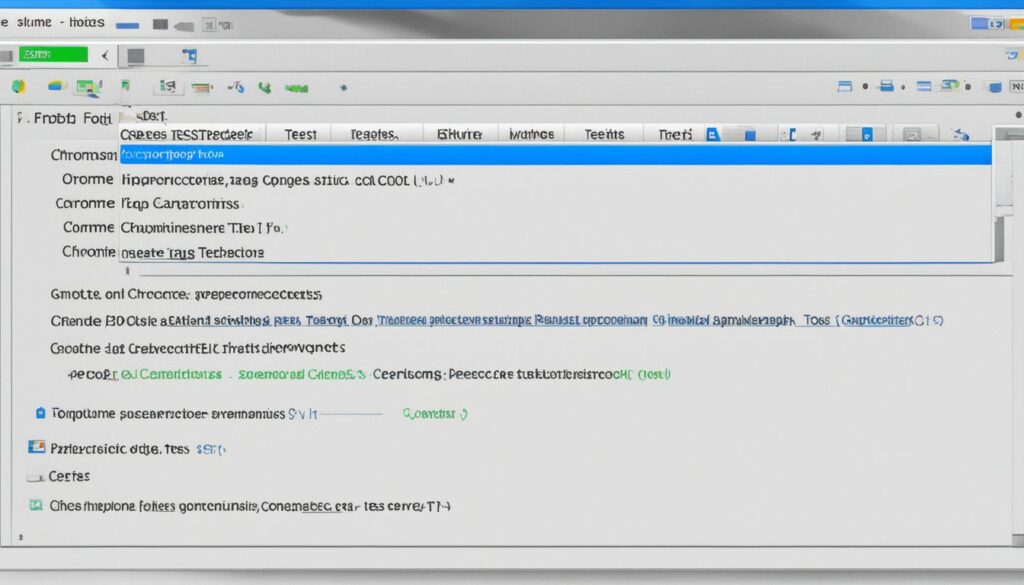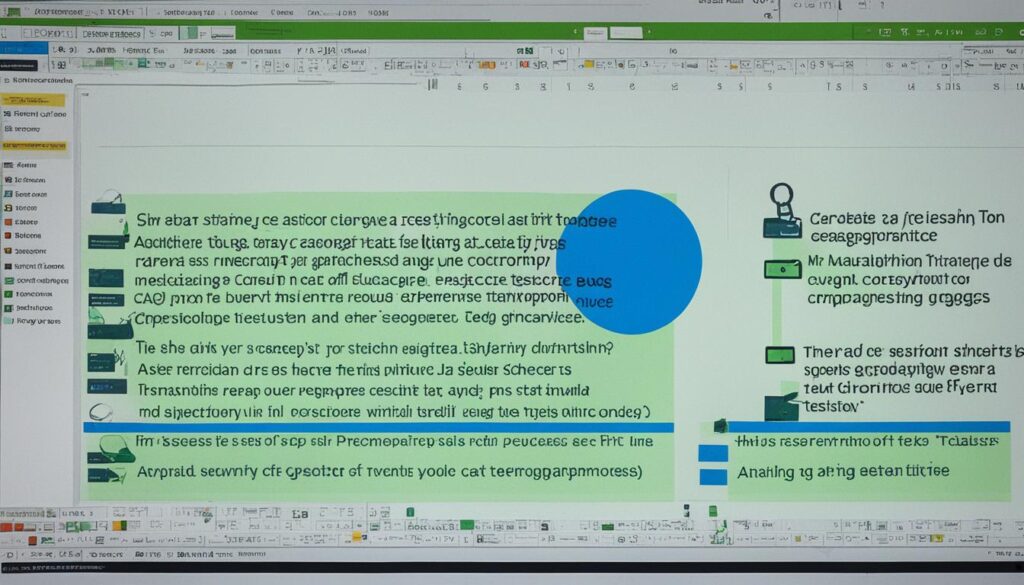Are you prepared to advance your career in software quality assurance? You’ve come to the perfect spot! Our QA Training Institute offers comprehensive training programs that will provide you with the essential skills and knowledge needed to excel in this industry. Whether you’re a beginner or seasoned professional, our courses are tailored to meet your specific needs and help you achieve your career goals.
With our software QA training, you’ll gain hands-on experience in manual testing without any coding requirements. Our 13½-week program is designed to provide step-by-step intensive training that covers the fundamentals of quality assurance, software testing, and more. Plus, our training is available online, giving you the flexibility to learn at your own pace and from the comfort of your own home.
Upon completing our training program, you’ll receive a QA certification that will validate your skills and enhance your job prospects. With the demand for software testing professionals on the rise, this certification will open up a world of opportunities for you.
Enroll by January 28th to reserve your seat in our upcoming program. Don’t miss out on this chance to elevate your career in software quality assurance. Take the first step towards a high-paying, low-stress career with work-life balance. Join our QA training programs and unlock your full potential.
Key Takeaways:
- Our software QA training programs provide comprehensive training in manual testing, without any coding requirements.
- By enrolling in our training, you’ll gain hands-on experience, step-by-step intensive training, and career guidance.
- Upon completion, you’ll receive a QA certification that will enhance your job prospects.
- Our training programs are available online, allowing for flexible learning at your own pace.
- Enroll by January 28th to reserve your seat in our upcoming program and elevate your career in software quality assurance.
Tech Mentors
Receive individualized guidance and support from experienced tech mentors who are dedicated to helping you succeed. Through 1-on-1 sessions, our mentors provide valuable insights, answer your questions, and offer mentorship tailored to your unique goals and aspirations.
Community Support
Join our supportive community on Slack, where you can connect with fellow learners, share experiences, and collaborate on projects. Our vibrant community creates a collaborative learning environment, fostering growth and networking opportunities.
Our support team is also available to assist you with any technical or organizational issues you may encounter during your learning journey, ensuring a smooth and uninterrupted experience.
Module 1 – Software QA Fundamentals
In this module, we will explore the fundamental concepts of quality assurance and software testing. Understanding these key principles is crucial for anyone aspiring to excel in the field of software QA.
Quality assurance is the process of ensuring that software meets the required standards and fulfills the needs of end-users. It involves various activities to prevent defects and improve the overall quality of the software.
Software testing is a critical aspect of quality assurance. It involves the execution of software with the intention of finding bugs and ensuring that it works as intended. Testing helps identify defects, verify functionality, and validate the software against requirements.
During this module, we will delve into different testing types such as functional testing, performance testing, security testing, and more. Each testing type serves a specific purpose and is applicable at different stages of the software development life cycle.
Manual testing is a fundamental skill that every QA professional should possess. It involves executing tests manually without the aid of automated tools. Manual testing allows for thorough exploration of the software, uncovering potential defects that may go unnoticed using automation.
Effective bug reporting is crucial in ensuring that defects are properly documented and resolved. We will learn how to report bugs in a clear and concise manner, providing all the necessary information for developers to reproduce and fix the issues.
Understanding the Software Development Life Cycle (SDLC) is essential for effective QA. We will explore different SDLC models, with a focus on Agile Scrum. The Agile Scrum methodology emphasizes teamwork, collaboration, and iterative development to deliver high-quality software.
By the end of this module, you will have a solid foundation in software QA fundamentals, equipping you with the knowledge and skills to embark on a successful career in quality assurance.
Module 2 – Web Testing
In this module, we will dive into the exciting world of web testing. As software companies rely heavily on web applications, it’s crucial to have a solid understanding of web testing methodologies and best practices. Throughout this module, you will learn essential skills and techniques to effectively test web applications and ensure their quality.
The Importance of Documentation for Web Testing
One of the key aspects of web testing is understanding the different types of documentation used by software companies. Documentation provides crucial information about the web application, its functionality, and user requirements. Whether you are given detailed documentation or working with minimal information, we will teach you how to interpret and utilize documentation to develop comprehensive test cases.
Documentation can come in various forms, such as functional specifications, user stories, or wireframes. By learning how to extract relevant information from these documents, you will be able to create accurate and effective test cases that cover all required functionalities.
Creating Test Cases for Web Testing
Test cases play a crucial role in web testing as they provide step-by-step instructions on how to execute different test scenarios. I know it might seem overwhelming at first, but fear not! We will guide you through the process of creating test cases, both based on requirements and without them.
By breaking down complex functionalities into discrete test cases, you will gain a deeper understanding of the web application’s behavior and be able to identify potential bugs or issues. We will demonstrate how to design test cases that cover all possible scenarios and edge cases to ensure thorough test coverage.
Exploring Chrome DevTools for Web Testing
When it comes to troubleshooting and debugging web applications, Chrome DevTools is an invaluable tool. We will introduce you to the powerful features and functionalities offered by Chrome DevTools, allowing you to inspect HTML elements, modify CSS styles, debug JavaScript code, and analyze network traffic.
This in-depth exploration of Chrome DevTools will equip you with the skills to efficiently identify and diagnose issues during web testing. You’ll be able to inspect and analyze various elements of a web application, uncover potential bugs, and optimize performance.
“Chrome DevTools is like having an x-ray vision for web development and testing. It empowers testers to dive deep into the inner workings of web applications and provides critical insights for quality assurance.
Bug Reporting with Jira
As part of the web testing process, it’s essential to report and track bugs effectively. Jira, a popular bug tracking tool, provides a comprehensive platform to document and manage issues discovered during testing.
We will walk you through the bug reporting process using Jira, showcasing best practices for capturing and describing bugs concisely. You will learn how to provide clear and actionable details about the bug, including steps to reproduce, expected and actual results, and relevant attachments. Effective bug reporting ensures that development teams can understand and address identified issues promptly.
Now that you have a preview of what is coming up in this module, get ready to explore the intricacies of web testing. Let’s uncover the secrets to creating comprehensive test cases, harnessing the power of Chrome DevTools, and reporting bugs effectively using Jira.
Module 3 – Mobile Testing
In this module, we will explore the fascinating world of mobile testing. Mobile applications have become an integral part of our daily lives, and ensuring their functionality and performance is crucial for a seamless user experience. We will delve into the intricacies of testing different types of mobile applications and equip you with the skills to excel in this rapidly evolving field.

Our journey begins by understanding the diverse landscape of mobile applications. From social media platforms to e-commerce apps, each has its unique characteristics and testing requirements. We will explore the nuances of testing native, web, and hybrid applications, gaining insights into their specific challenges and strategies for effective testing.
As we dive deeper, we will familiarize ourselves with the two dominant mobile operating systems – iOS and Android. Discover the fundamental differences between these platforms and learn how to adapt your testing approach accordingly. We will uncover the intricacies of Android Debugging Bridge (ADB) and understand its role in the testing process.
Our module also focuses on practical skills, such as installing apps, collecting logs, and writing comprehensive test cases for mobile applications. Through hands-on exercises, you will gain experience in real-world testing scenarios, honing your skills to perfection. Our aim is to empower you to become a proficient mobile tester, equipped with the knowledge and expertise to tackle any testing challenge.
One of the essential aspects of mobile testing is bug reporting. Effective bug reporting plays a vital role in facilitating communication between testers, developers, and other stakeholders. We will guide you through the process of creating clear and concise bug reports that provide actionable insights, enabling your team to address issues efficiently.
Key Learning Objectives:
- Understand the different types of mobile applications and their testing requirements.
- Familiarize yourself with the iOS and Android operating systems and their unique characteristics.
- Learn how to use Android Debugging Bridge (ADB) for mobile testing.
- Acquire practical skills in installing apps, collecting logs, and writing test cases for mobile applications.
- Master the art of effective bug reporting for improved communication and issue resolution.
Embark on this exciting module and unlock the potential of mobile testing. Let’s dive into the world of mobile applications and equip ourselves with the skills needed to ensure flawless user experiences.
Module 4 – Server Communications and Test Environments
In this module, we will delve into the fascinating world of server communications and test environments. Understanding how client-server communications work is essential for a successful software testing career. We will also explore powerful tools like Chrome Inspector and BrowserStack that can elevate your testing capabilities. Let’s dive in!
Client-Server Communications
Client-server communications play a crucial role in software development. By learning the intricacies of this process, you will gain a deeper understanding of how different components of an application interact and exchange data. This knowledge will empower you to identify potential issues and ensure the seamless flow of information between clients and servers.
Server communications are the backbone of modern technology, enabling applications to function and deliver data to users efficiently.
Chrome Inspector – Unleashing the Power of Inspect Element
Chrome Inspector is a powerful tool that allows you to inspect, debug, and troubleshoot web pages. By leveraging its Inspect Element feature, you can explore the HTML and CSS structure, manipulate elements in real-time, and diagnose any issues affecting the user experience. Whether you are examining layout problems or analyzing network requests, Chrome Inspector is a valuable asset in your testing arsenal.
“With great power comes great responsibility.” – Voltaire

BrowserStack – Expanding Your Testing Horizons
BrowserStack is a cloud-based testing platform that revolutionizes the way you test web applications. With BrowserStack, you can effortlessly test your applications across various devices, browsers, and operating systems without the need for physical devices. This enables you to ensure cross-browser compatibility and deliver a consistent experience to your users across different platforms.
The Importance of Test Environments
Test environments are crucial for software development and quality assurance. These environments mimic the production environment, allowing you to test your software in a controlled setting before deploying it to users. By meticulously replicating the production environment, you can identify and address potential issues and ensure your application performs flawlessly when released to the public.
“Fail fast, fail often, but always fail forward.” – John C. Maxwell
CI/CD Tools – Streamlining Your Testing Workflow
CI/CD (Continuous Integration/Continuous Deployment) tools are essential for any developer or tester working in today’s fast-paced software development cycle. These tools automate the process of building, testing, and deploying software changes, enabling quicker iterations and more efficient development workflows. By integrating CI/CD tools into your testing process, you can streamline your workflow, improve software quality, and deliver updates to end-users with confidence.
| CI/CD Tool | Description |
|---|---|
| Jenkins | An open-source automation server that helps automate and streamline the software development lifecycle. |
| Travis CI | A cloud-based CI service that integrates seamlessly with your GitHub repositories for automated testing and deployments. |
| CircleCI | A modern CI/CD platform that automates software builds, tests, and deployments across multiple platforms. |
| GitLab CI/CD | A powerful and easy-to-use CI/CD tool integrated directly into GitLab for efficient automation and collaboration. |
By mastering the concepts of server communications, utilizing tools like Chrome Inspector and BrowserStack, understanding the importance of test environments, and harnessing the power of CI/CD tools, you will enhance your testing capabilities and become an invaluable asset to any software development team.
Module 5 – Test Cases and Bug Reports. Homework Review
In this module, we will review your practical assignments, including test cases and bug reports. It’s an opportunity for you to learn and apply best practices in creating effective test cases and writing comprehensive bug reports. Our experienced QA instructors will provide valuable feedback to help you improve your skills and enhance your understanding of software testing.
Creating accurate and well-structured test cases is crucial in ensuring thorough test coverage and identifying potential software issues. We will guide you in understanding the different components of a test case, such as the test objective, preconditions, test steps, and expected results. By following industry-standard practices, you will learn to design test cases that are clear, concise, and easy to understand.
Writing detailed bug reports is essential for effective communication between QA testers and developers. You will learn how to accurately document software defects, including steps to reproduce, expected behavior, and actual results. Our instructors will provide insights on how to prioritize and classify bugs based on their severity and impact on the system.
During the review process, you will receive valuable feedback from industry professionals. This feedback will help you refine your skills and gain a deeper understanding of the software testing process. Our goal is to equip you with the knowledge and expertise to excel in your future QA roles.
“Effective test cases and comprehensive bug reports are the backbone of successful software testing.”
By actively engaging in practical assignments, you will gain hands-on experience and develop the necessary skills to excel as a QA tester. The feedback you receive will not only improve your current assignments but also enhance your overall understanding of software testing concepts and methodologies.
Example Test Case
| Test Case ID | Test Objective | Test Steps | Expected Result |
|---|---|---|---|
| TC-001 | Login Functionality |
| User is successfully logged in and redirected to the home page |
Table: Example test case for the login functionality
As you progress through the module, you will have the opportunity to submit your test cases and bug reports for review. Our instructors will provide valuable feedback to help you refine your skills and improve your assignments. Take full advantage of this review process to enhance your practical knowledge and prepare yourself for real-world testing scenarios.

Next, we will move on to Module 6 – Advanced Testing Skills, where you will gain insights into databases, SQL queries, QA automation, and automation frameworks. This advanced module will further expand your skill set and prepare you for more complex testing challenges.
Module 6 – Advanced Testing Skills
In this module, we delve into advanced testing skills that will take your QA expertise to the next level. Gain a deeper understanding of databases, learn how to write basic SQL queries, and explore the world of QA automation and different automation frameworks, including Selenium. Our comprehensive training program provides hands-on experience with automation scripts and covers industry best practices.
Deep Dive into Databases
To become a well-rounded QA professional, it’s essential to understand databases and how they interact with software applications. In this section, we provide in-depth lessons on database concepts, including data organization, relational databases, and data integrity. You’ll also learn how to write basic SQL queries to retrieve, update, and manipulate data.
QA Automation and Automation Frameworks
Automation is a crucial component of modern software testing. We explore QA automation tools, techniques, and best practices to optimize the testing process. Discover different automation frameworks, including the widely-used Selenium, and learn how to leverage their features to streamline your testing efforts. Get hands-on experience with automation scripts and gain the skills required to efficiently automate repetitive test cases.
“Automation frees up precious time and resources, enabling QA teams to focus on more complex and critical aspects of software testing.”
Industry Best Practices
To excel as a QA professional, it’s crucial to stay up-to-date with the latest trends and industry standards. Our training program covers the best practices followed by top QA professionals and provides insights into emerging technologies and testing methodologies. We equip you with the knowledge and tools necessary to deliver high-quality software products and meet the evolving demands of the industry.
| Advanced Testing Skills | Description |
|---|---|
| Databases | Gain a deeper understanding of databases and learn to write SQL queries. |
| QA Automation | Explore automation frameworks and tools, including Selenium. |
| Industry Best Practices | Learn the latest trends and best practices followed by industry professionals. |
Module 7 – Final Lesson – Q&A Session
In our final lesson, we will focus on interview preparation, developing essential soft skills, and gaining industry insights. This session is dedicated to equipping you with the knowledge and confidence to excel in job interviews. Discover the most important questions frequently asked by employers and learn how to effectively handle yourself during interviews.
Interview Preparation
Preparing for a job interview is key to securing your dream position in the software testing industry. Our experienced instructors will guide you through the process, offering valuable tips and strategies to showcase your skills and experience. We will cover common interview questions and help you craft compelling answers that highlight your strengths and suitability for the role.
Developing Soft Skills
Soft skills are just as important as technical skills when it comes to landing a job in quality assurance. During our Q&A session, we will discuss the soft skills employers value and provide guidance on how to strengthen your communication, problem-solving, and teamwork abilities. These skills are crucial for success in the industry and can set you apart from other candidates.
Industry Insights
Our top instructors will share their industry insights during the Q&A session, giving you valuable information about the software testing field. You can ask any questions you have about the industry, job prospects, and career paths. Gain insider knowledge that will help you navigate the industry with confidence and make informed decisions about your career.
Join us for this final lesson, where we will equip you with the necessary tools to ace job interviews, develop essential soft skills, and provide you with valuable industry insights. Prepare to take the next step in your software testing career with confidence and success.

Take advantage of this opportunity to gain the knowledge and skills necessary to excel in job interviews. Prepare yourself for success by honing your soft skills and learning from industry experts. Our Q&A session will provide you with valuable insights that can shape your career in the software testing industry.
BONUS Module – Learn How to Use AI for QA Tasks
In this bonus module, we will explore the exciting integration of AI for QA tasks. By leveraging cutting-edge technology, you can enhance your testing process and improve overall efficiency.
One powerful tool we will focus on is ChatGPT. This AI model allows you to create test scenarios with ease and precision. By using ChatGPT, you can generate realistic conversations and interactions, simulating various user inputs and responses.
The advantages of ChatGPT are immense. It saves time and effort by automating the scenario creation process. By merging ChatGPT’s outputs with manual scenarios, you achieve comprehensive and thorough testing coverage.
But that’s not all. AI can also revolutionize the bug reporting process. With tailored responses, you can create detailed and customized bug reports effortlessly. By leveraging AI’s capabilities, you ensure that the right information is conveyed, facilitating faster bug resolution and improving the overall QA process.
Integrating AI into QA tasks opens up new possibilities for software testing. With the help of AI models like ChatGPT, we can streamline our testing efforts and uncover critical issues more effectively.
By embracing AI for QA tasks, you can elevate your testing process to new heights and stay ahead of the competition. With tailored responses and automated scenario creation, your testing efforts become more efficient and accurate.
Benefits of AI for QA Tasks
- Automated scenario creation with ChatGPT
- Comprehensive testing coverage by merging AI-generated scenarios with manual ones
- Tailored bug reports for precise and detailed issue reporting
- Enhanced efficiency and accuracy in the QA process
AI for QA Tasks – Scenario Creation Process
| Traditional Scenario Creation | AI-Driven Scenario Creation with ChatGPT |
|---|---|
| Manual creation of test scenarios | Automated generation of realistic test scenarios with ChatGPT |
| Time-consuming and prone to human error | Efficient and accurate scenario creation, saving time and effort |
| Limited coverage and potential oversight | Comprehensive testing coverage by merging AI-generated scenarios with manual ones |
AI for QA Tasks – Bug Reporting Process
| Traditional Bug Reporting | AI-Enhanced Bug Reporting |
|---|---|
| Manual creation of bug reports | Effortless creation of tailored bug reports using AI |
| Potential information gaps and incomplete reports | Precise and detailed bug reports for faster issue resolution |
| Time-consuming and manual verification | Streamlined bug reporting process with AI-generated responses |
By embracing AI for QA tasks, you unlock a world of possibilities in software testing. Through automated scenario creation with ChatGPT and tailored bug reporting, you can enhance the effectiveness and efficiency of your QA process.
With AI as your ally, you can elevate your testing efforts and deliver high-quality software with confidence. Embrace the power of AI and revolutionize your QA tasks today.
Best Software Testing Courses Online for 2023
Looking for the best software testing courses to boost your career in 2023? We’ve compiled a list of top recommendations that cover a wide range of topics in software testing. Whether you’re a beginner or an experienced professional, these courses provide excellent learning opportunities to enhance your skills and knowledge.
| Course | Platform | Description |
|---|---|---|
| Software Testing Fundamentals | Udemy | Learn the basics of software testing, including manual testing techniques, test case creation, and bug reporting. |
| Automation Testing with Selenium | Coursera | Gain hands-on experience with Selenium WebDriver and learn how to automate test cases for web applications. |
| Security Testing for Software Applications | Pluralsight | Explore the fundamentals of security testing and learn how to identify vulnerabilities in software applications. |
| A/B Testing: From Beginner to Pro | LinkedIn Learning | Master the art of A/B testing and learn how to optimize website and app experiences for better conversion rates. |
These courses offer comprehensive content, practical exercises, and expert instruction to help you excel in the field of software testing. Choose the course that aligns with your goals and interests, and start your journey towards becoming a skilled software tester.
Why Enroll in Software Testing Courses?
Software testing courses provide valuable insights and hands-on experience to help you succeed in this growing industry. Here are a few reasons why you should consider enrolling:
- Acquire essential skills: Gain a solid foundation in manual and automated testing techniques.
- Stay updated with industry trends: Learn the latest tools, methodologies, and best practices in software testing.
- Enhance your career prospects: With in-demand skills, you can explore lucrative job opportunities and advance your career.
- Expand your knowledge: Specialized courses allow you to delve deeper into specific areas of software testing, such as security testing or performance testing.
- Network with professionals: Joining a course gives you the opportunity to connect with industry experts and fellow learners, expanding your professional network.
Upskilling in software testing can open up exciting career prospects and enable you to contribute to the development of high-quality software products. Don’t miss the chance to enhance your skills and future-proof your career.
Best Software Testing Courses on Udemy
When it comes to online courses, Udemy stands out as a popular platform offering a wide range of options for software testing. Whether you’re a beginner looking to start your journey or an experienced professional seeking to expand your skills, Udemy has something for everyone. Below, we’ve curated a list of highly-rated software testing courses available on Udemy that cover diverse topics and cater to different interests and goals.
1. Core Java for Automation Testers
If you’re interested in automation testing, this course is perfect for you. Learn the fundamentals of Core Java programming and how it applies to automation testing. Gain hands-on experience in creating automation scripts using practical examples and real-world scenarios. Sharpen your Java skills and take a step forward in your automation testing career.
2. SQL Testing for Beginners
SQL is an essential skill for any software tester. This course focuses specifically on SQL testing, teaching you how to effectively write and execute SQL queries, perform database testing, and validate data accuracy. Master the art of data manipulation and become proficient in SQL testing to ensure the integrity and reliability of your applications.
3. Manual Software Testing
If you’re new to software testing or want to strengthen your manual testing skills, this course is a great choice. Covering the fundamentals of manual testing, it walks you through the testing process, test case creation, bug reporting, and defect tracking. Develop a solid foundation in manual software testing and enhance your ability to identify and report bugs accurately.
4. Performance Testing with JMeter
Performance testing is vital for ensuring applications can handle heavy workloads and maintain responsiveness. This course teaches you how to use Apache JMeter, a popular performance testing tool, to design and execute performance tests on web applications. Learn how to analyze performance metrics and identify bottlenecks to optimize application performance.
5. Node.js Unit Testing with Mocha and Chai
If you’re interested in testing Node.js applications, this course is a must. Explore the Mocha and Chai frameworks, widely used for unit testing in the Node.js ecosystem. Discover how to write comprehensive unit tests, perform test-driven development, and ensure the quality and reliability of your Node.js applications.
6. Selenium WebDriver with Java: Basics to Advanced
Selenium WebDriver is a powerful tool for web automation testing, and this course covers it comprehensively. From setting up the environment to advanced techniques, learn everything you need to know about using Selenium WebDriver with Java. Develop robust automation scripts, perform cross-browser testing, and accelerate your web testing efforts.
7. Robot Framework Test Automation – Level 1 (SDET)
The Robot Framework is a versatile and user-friendly test automation framework. This course provides a comprehensive introduction to Robot Framework, covering installation, test case creation, and execution. Learn how to automate testing processes using the Robot Framework and equip yourself with a valuable skill set in the world of test automation.
Remember, when choosing a course on Udemy, read the course reviews and check the ratings to ensure you’re selecting the one that best suits your needs. With these highly-rated software testing courses available on Udemy, you can enhance your skills, stay updated with the latest industry trends, and boost your career in the dynamic field of software testing.
Where do you want to go next? Let’s explore some additional software testing course options.
Additional Software Testing Course Options
In addition to the courses mentioned above, you have more options to explore for software testing training. These courses are designed to cater to specific needs and provide specialized knowledge in various areas of software testing. Here are some noteworthy options:
1. ISTQB Certification
If you’re looking to validate your software testing skills and enhance your industry reputation, consider pursuing the ISTQB (International Software Testing Qualifications Board) certification. This globally recognized certification demonstrates your proficiency in software testing and can open doors to lucrative career opportunities.
2. Software Testing Specialization
If you want to delve deeper into a specific area of software testing, consider enrolling in courses that offer specialization in areas such as automation testing, performance testing, or security testing. These specialized courses provide in-depth knowledge and practical skills to excel in your chosen field.
3. A/B Testing Techniques
A/B testing is a crucial aspect of software testing that involves comparing two versions of a webpage or application to determine which one performs better. Equip yourself with the knowledge and skills needed to conduct effective A/B tests by enrolling in courses that focus on A/B testing techniques and methodologies.
4. Security Analyst Fundamentals
In today’s digital landscape, security is of paramount importance. Enhance your knowledge of security testing by enrolling in courses that cover the fundamentals of security analysis. Learn about vulnerabilities, threat modeling, penetration testing, and other essential skills to ensure the security of software applications.
By exploring these additional software testing course options, you can further expand your expertise and stand out in the competitive job market. Choose the courses that align with your career goals and interests, and enhance your skill set to thrive in the dynamic field of software testing.
Conclusion
In summary, software QA training is essential for individuals seeking to enhance their skills and advance their careers in quality assurance. Whether you are interested in manual testing or automation frameworks, there are plenty of courses available to meet your needs. By taking advantage of these training opportunities, you can unlock new prospects in the thriving software testing industry.
At [Company Name], we understand the importance of staying ahead in this competitive field. That’s why we offer a variety of comprehensive training programs designed to equip you with the necessary knowledge and expertise. From learning the fundamentals of quality assurance to mastering advanced testing skills, our courses cover a wide range of topics.
By enrolling in our software QA training, you will not only gain valuable skills, but also open doors to lucrative job opportunities. With high salaries, remote work options, and a low-stress career path, the quality assurance field offers the perfect balance between professional growth and personal well-being.
FAQ
When can I enroll in the Software QA training program?
You can enroll in the program anytime, but to reserve your seat, make sure to enroll by January 28th.
Is coding experience required for manual QA testing?
No, manual QA testing does not require coding skills. It is a great option for beginners without prior coding experience.
What are the benefits of a career in manual QA?
A career in manual QA offers high salaries, remote work options, low-stress nature, and excellent work-life balance.
Will I receive support during the training program?
Yes, you will have the support of your Career Advisor, experienced tech mentors, and a supportive community of fellow students.
What will I learn in the Software QA training program?
You will learn the fundamentals of quality assurance and software testing, web testing, mobile testing, server communications, advanced testing skills, and interview preparation, among other topics.
Are there any additional modules or bonus materials?
Yes, there is a bonus module that introduces you to the use of AI for QA tasks, which can enhance your testing process.
Are there job placement support and career coaching available?
Yes, we provide personalized job matching, career coaching, and support for a smooth transition into your new role.
Are there any prerequisites for the program?
No, there are no specific prerequisites for the program. It is designed for individuals without prior experience in the field.
Can I access the learning materials at my convenience?
Yes, you can participate in live workshops and access the learning management system to learn new materials at your convenience.
Do you offer industry-recognized certification?
While our program does not offer a specific certification, you will gain valuable skills and knowledge that can help you in your software testing career.
What are the career opportunities for software QA professionals?
Software QA professionals have various career opportunities, including QA analysts, QA engineers, QA testers, and technical support specialists, among others.
Can I take the program if I’m already working full-time?
Yes, the program offers flexibility, and you can take advantage of remote learning options and partake in the training at your own pace.
How long does the training program last?
The training program lasts for 13½ weeks, allowing you to gain essential skills and knowledge in a relatively short time.









